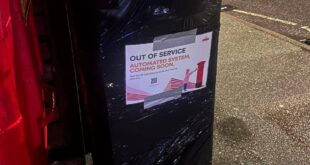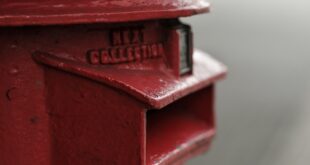Image copyright
Getty Images
Prime Minister Boris Johnson referred in Parliament on Wednesday to Labour’s nationalisation plans, describing them as a “£196bn programme taking away money from companies”.
The figure comes from employers’ organisation the CBI, which published its research into how much it would cost a Labour government to nationalise the industries it currently plans to.
The party is proposing a programme of nationalisation that would bring into public ownership:
- the Royal Mail
- rail-operating companies and rolling stock
- energy supply networks
- water and sewerage companies
The CBI concluded the nationalisation would cost an initial £196bn, which is a lot of money even for a government – it’s about 9% of the output of the economy in a year.
This is a very difficult figure to arrive at – the Labour Party has not put a figure to this and has not been clear about how it would go about nationalising these industries.
Also, the CBI has not broken down how much it thinks each business is worth – it has released only the overall figure.
Image copyright
AFP
One problem with the analysis is it does not take account of the value of the assets bought.
If, for example, the government were to issue bonds to buy the Royal Mail at its current market value of about £2.1bn, it would then have an extra £2.1bn of debt but also an extra £2.1bn of assets. And it seems a mistake to consider only one of those figures.
Labour has also proposed a new set of fiscal targets that exclude money borrowed for investment for precisely this reason. And the Institute for Fiscal Studies (IFS) has described this idea as having “much to commend it”.
Better run?
The whole CBI analysis is based on the upfront cost without considering any value or benefit from the assets. The water companies, for example, would be expected to provide an income from customers’ bills, which should pay to service the debt and even provide some money to the government on top of that.
If the nationalised industries would be significantly better run by the public sector than the private sector, the benefits to the nation would be considerable. If not, then the opposite would be true.
Another key question is how much a Labour government would end up having to pay for these assets.
Image copyright
PA Media
This could vary. The rail-operating companies would be relatively cheap to nationalise over time, because the franchises have time limits on them. The government could just wait for them to end and then take them into public ownership.
With the Royal Mail, we have a pretty good idea how much it is worth because it is listed on the stock-market, although it is not currently clear whether a Labour government would buy 51% of the shares to take control or 100% to nationalise it. There is also a question of which figure a Labour government would take for its value and whether it would pay a premium above that price to compensate shareholders.
‘Arbitrary and fanciful’
The CBI research has assumed it would have to pay a 30% premium, based on the prices of historical takeovers of utility companies by other companies.
Labour says the 30% premium is “arbitrary, fanciful and reflects the kind of profiteering that public ownership will end”.
Cat Hobbs, from the pro-nationalisation group We Own It, told the BBC: “We don’t think the 30% mark-up is realistic at all. It’s typical takeover practice but nationalisation is not the same as a takeover.”
It is hard to find recent examples of the UK government buying healthy companies. It did not pay anything to shareholders of Northern Rock in 2008 because it concluded (and the courts agreed) the lender had no value without government support.
Image copyright
Reuters
But the businesses Labour wants to buy are not in trouble. A better analogy would be the aircraft and shipbuilding industries nationalised in the 1970s (not all of which were in great health), for which the Labour government paid a price based on the average share price of the companies in the six months before it was elected.
And when the War-damaged railways were nationalised, in 1948, the government issued bonds to pay for the shares based on their price in November 1946.
The current Labour Party has said it would also make deductions based on things such as taking on pension-fund deficits, debts and subsidies given to the companies by previous governments.
Choosing prices
Furthermore, if the markets consider the threat of nationalisation under a Labour government is a credible one and shareholders may not receive the full value of their shares, the share prices could be depressed.
That means the share price before the election could be considerably higher than after it – and which price the government chooses to take would be important.
Meanwhile, Labour also wants to nationalise parts of the water and energy industries that are not stand-alone listed companies.
And to assess that, the CBI has taken the views of their respective regulators of the value of the assets.
But Labour has rejected that as “misguided”, saying: “These are purely notional values created by the regulator and include companies’ enormous debts.”
While the regulatory valuations are not a perfect figure to take – because of both debt issues and the exclusion of goodwill (that’s the value of the opportunities to make money from the business in addition to the actual value of the assets), however, they are not a bad starting point.
But clearly more work would be needed on the valuation if the process were actually under way.
Pension losses
The CBI has also warned if the government does not pay a premium, then UK pension funds and savers would take a hit of £9bn, which is £327 per UK household.
That is based on a calculation assuming 20% of the targeted assets are owned by UK investors.
But there would be a corresponding benefit to the taxpayer if the government did not pay a premium.
What claims do you want BBC Reality Check to investigate? Get in touch
Read more from Reality Check



